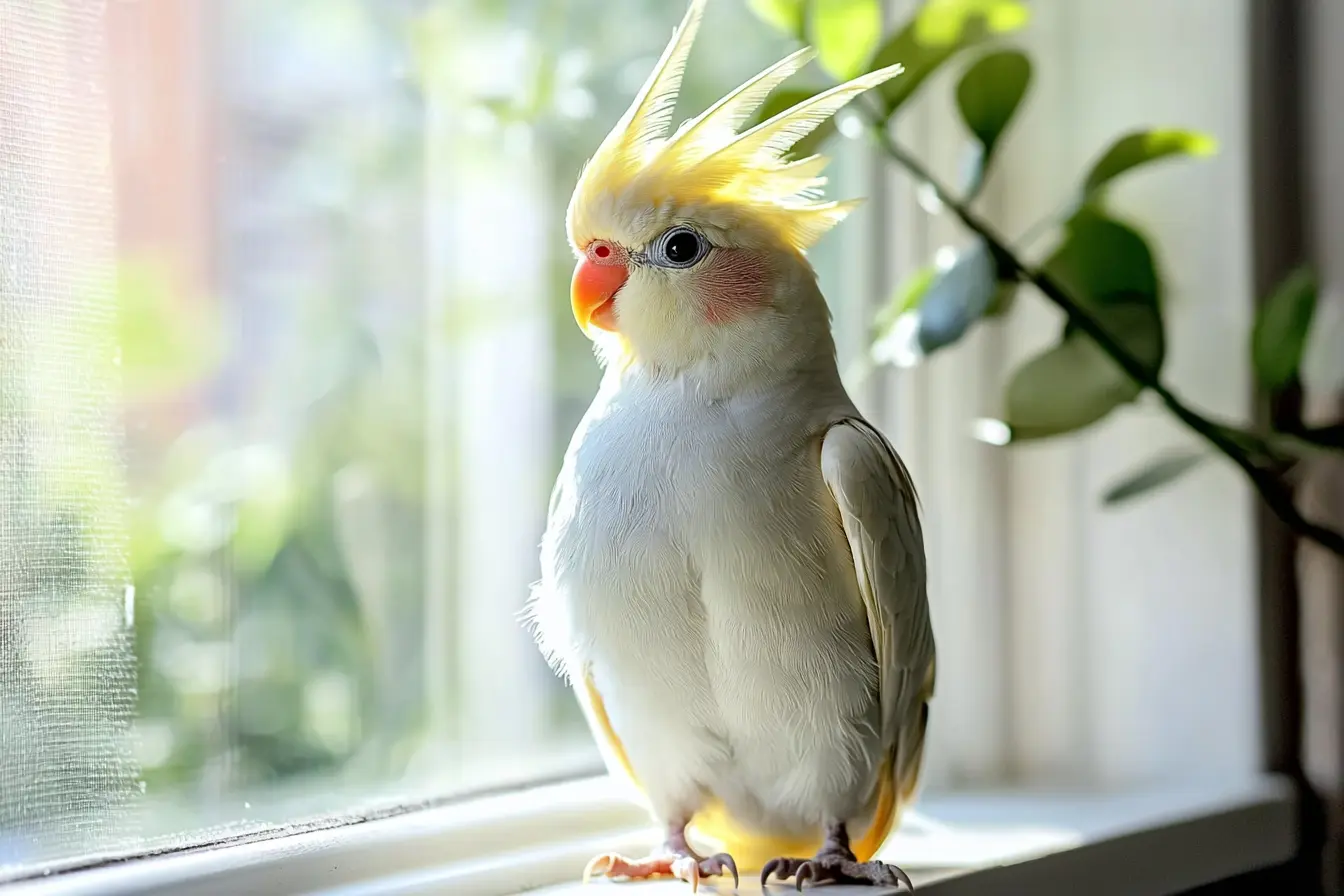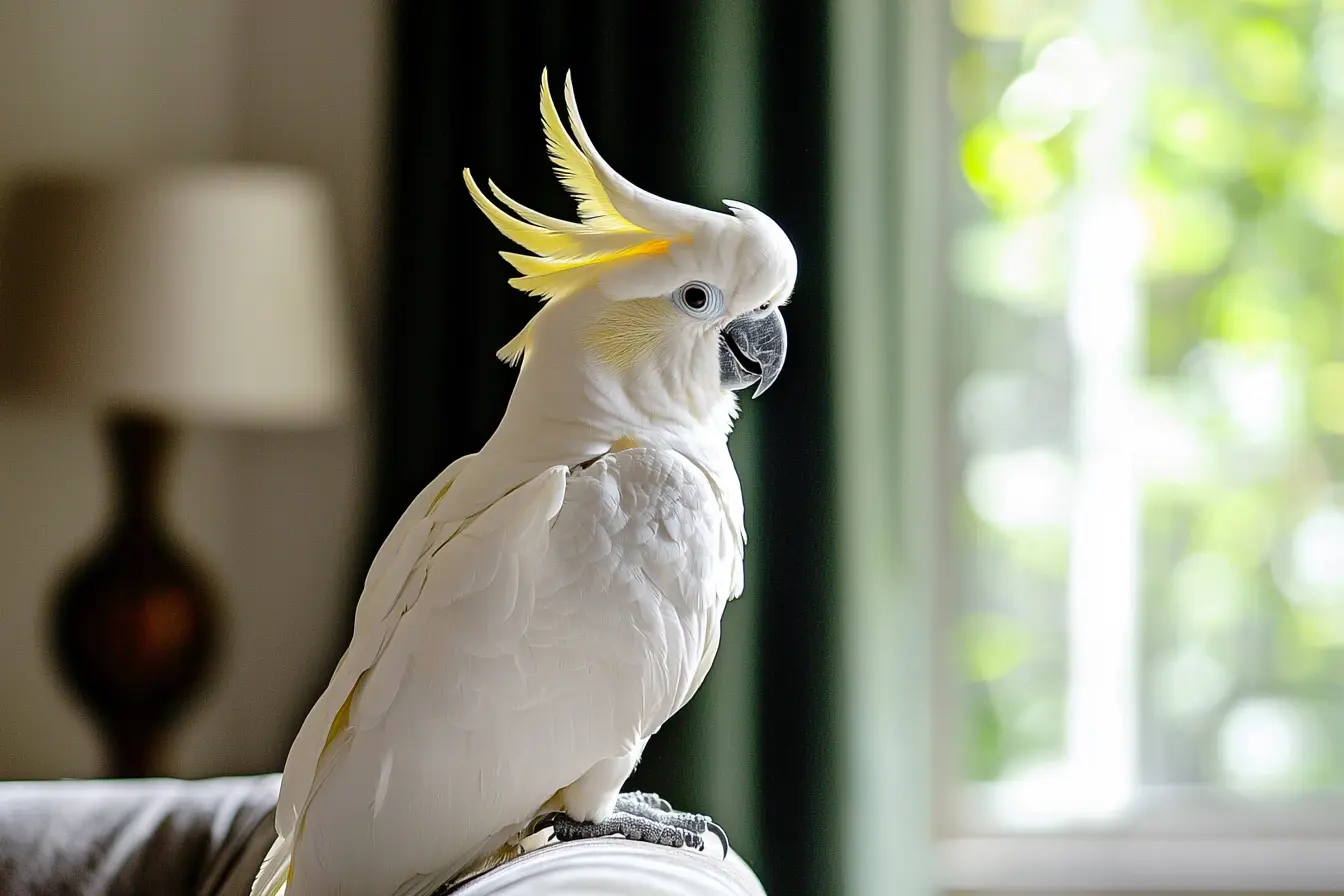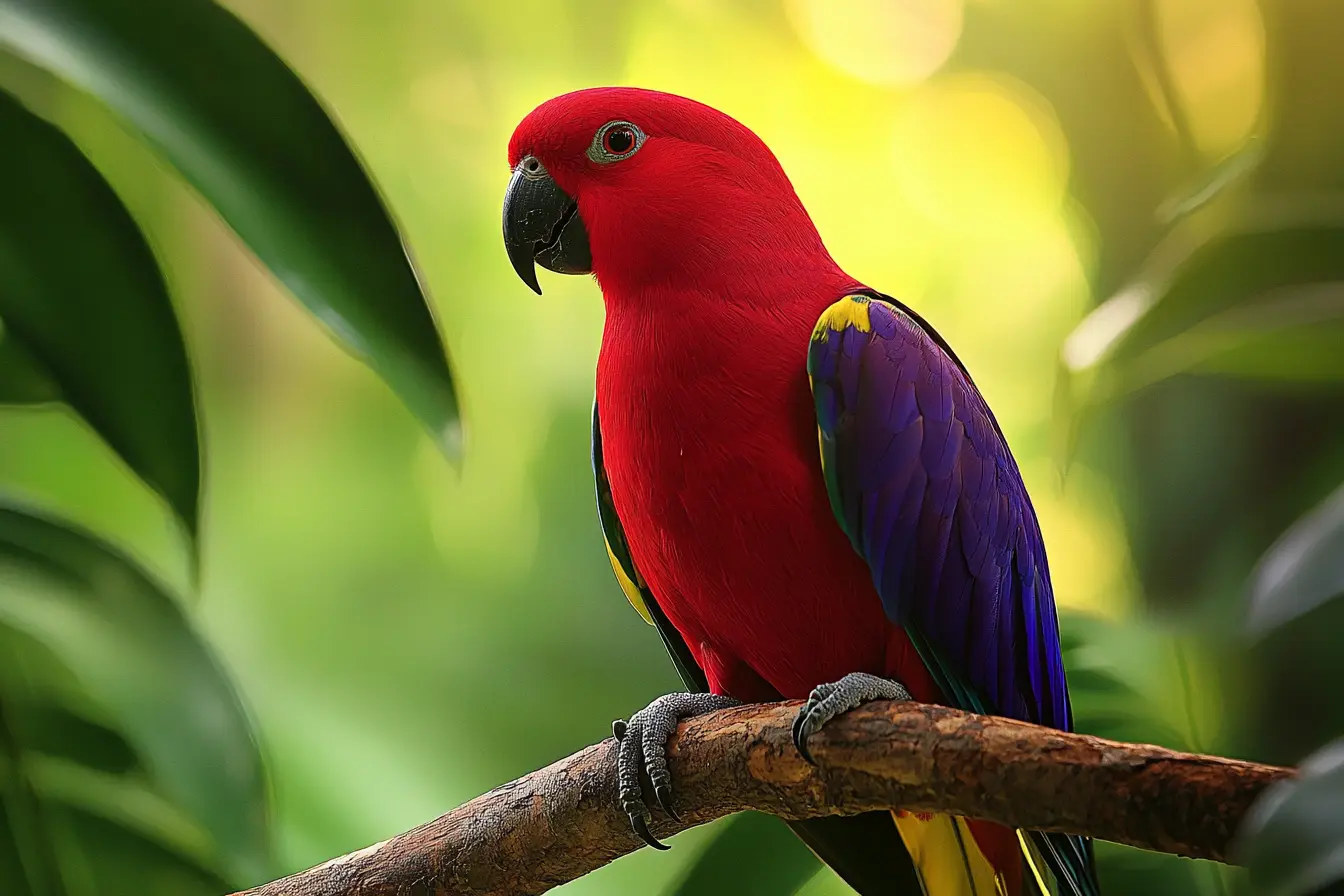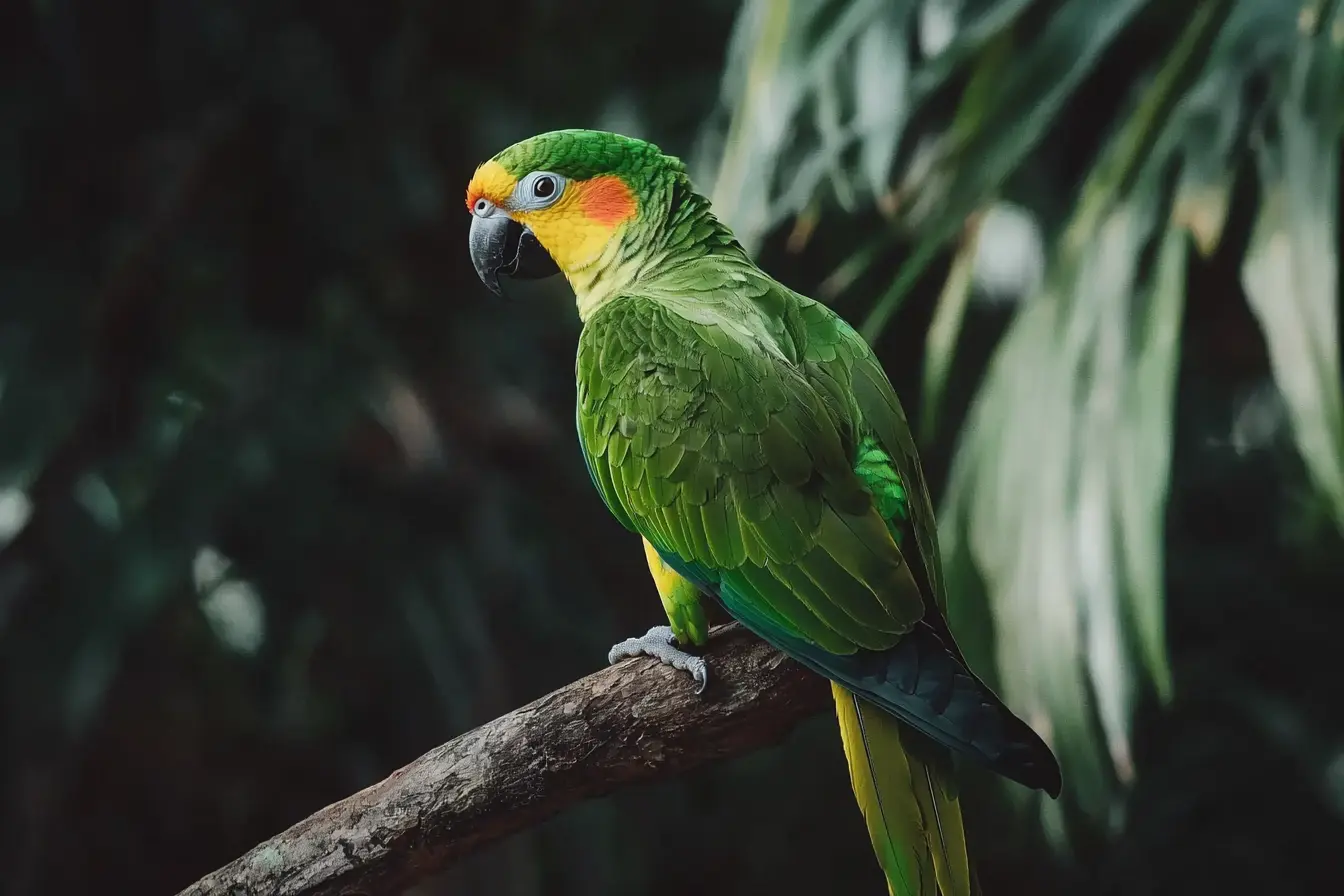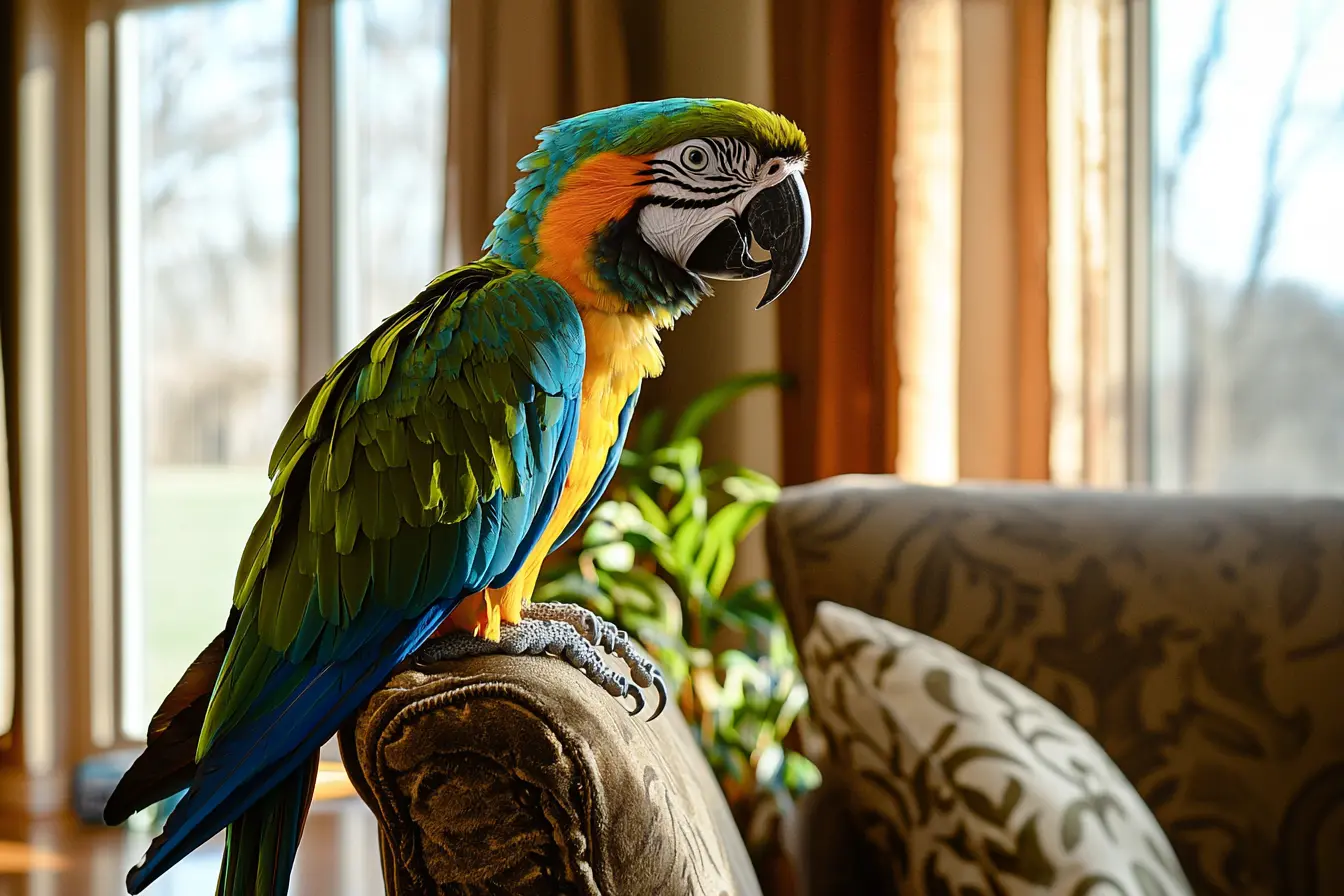
Common Illnesses in Pet Birds
Keeping pet birds can be a rewarding experience, but like any pet, they are susceptible to various health issues. Recognising the early signs of illness and understanding prevention and treatment options can make all the difference in ensuring a long, healthy life for your feathered companion.
This guide will explore some of the most common ailments affecting pet birds, their symptoms, causes, and treatment options.
Respiratory Infections
Symptoms
- Sneezing
- Wheezing or clicking noises
- Nasal discharge
- Tail bobbing (exaggerated up-and-down movement of the tail when breathing)
- Open-mouth breathing or laboured respiration
Causes
- Bacterial infections (e.g. Chlamydophila psittaci, causing Psittacosis)
- Fungal infections (e.g. Aspergillosis)
- Environmental factors such as poor ventilation, dust, cigarette smoke, or aerosol sprays
Treatment
- Veterinary examination and prescribed antibiotics or antifungal treatment
- Improved air quality: avoid exposure to smoke, aerosols, and dust
- Humidifiers may help birds with chronic respiratory issues
Psittacosis (Parrot Fever)
Symptoms
- Lethargy and fluffed-up appearance
- Nasal discharge and sneezing
- Diarrhoea (often green and watery)
- Loss of appetite and weight loss
- Breathing difficulties
Causes
- Caused by the bacterium Chlamydophila psittaci, which is zoonotic (transmissible to humans)
- Spread through droppings, feather dust, or direct contact with an infected bird
Treatment
- Requires urgent veterinary care
- Long-term antibiotic treatment (e.g. Doxycycline)
- Strict hygiene measures to prevent reinfection
Avian Gastric Yeast (Macrorhabdosis)
Symptoms
- Weight loss despite normal appetite
- Regurgitation and difficulty swallowing
- Undigested seeds in droppings
- General weakness
Causes
- Infection by Macrorhabdus ornithogaster, an avian yeast that affects digestion
Treatment
- Antifungal medication such as Amphotericin B
- Improved diet, avoiding high-sugar foods
Feather Plucking and Self-Mutilation
Symptoms
- Bald patches or excessive feather loss
- Repeated over-preening
- Visible wounds from self-inflicted damage
Causes
- Stress or boredom due to lack of mental stimulation
- Nutritional deficiencies
- Hormonal imbalances
- Underlying skin infections or allergies
Treatment
- Environmental enrichment: toys, foraging activities, and social interaction
- Vet check-up to rule out underlying medical causes
- Potential use of calming aids (e.g. avian pheromone sprays)
Beak and Feather Disease (PBFD)
Symptoms
- Progressive feather loss
- Deformed feathers and beak abnormalities
- Suppressed immune system, leading to secondary infections
Causes
- Caused by Psittacine Beak and Feather Disease Virus (PBFDV)
- Highly contagious, especially in young birds
Treatment
- No cure; management involves supportive care
- Quarantine affected birds to prevent spread
- Nutritional support to maintain immune function
Mites and Lice (Scaly Face and Scaly Leg Mites)
Symptoms
- White crusting around the beak, eyes, legs, and feet
- Thickened, scaly skin
- Itching and irritation
Causes
- Infestation by Knemidokoptes mites
- Can be spread through contact with infected birds or contaminated perches
Treatment
- Anti-parasitic treatments (e.g. Ivermectin) prescribed by a vet
- Thorough cage cleaning and disinfection
Bumblefoot (Pododermatitis)
Symptoms
- Swollen or reddened feet
- Ulcers or scabs on the soles
- Difficulty perching
Causes
- Hard or inappropriate perches
- Obesity
- Vitamin A deficiency
- Bacterial infection due to poor hygiene
Treatment
- Provide soft, varied perches (natural wood, rope)
- Weight management and dietary improvements
- Antibiotics if infection is present
Egg Binding (Dystocia)
Symptoms
- Straining and difficulty laying an egg
- Sitting at the bottom of the cage
- Swollen abdomen
Causes
- Calcium deficiency
- Lack of exercise
- Obesity or excessive egg-laying
Treatment
- Veterinary intervention (calcium injections, lubricant application)
- Proper diet with calcium-rich foods (cuttlefish bone, leafy greens)
Nutritional Deficiencies
Symptoms
- Poor feather quality
- Weakness or lethargy
- Overgrown beak or nails
Causes
- Seed-only diets lacking essential vitamins and minerals
- Deficiency in Vitamin A, D3, or calcium
Treatment
- Balanced diet including pellets, vegetables, and occasional fruit
- Vitamin supplements as advised by a vet
Liver Disease (Fatty Liver Disease)
Symptoms
- Lethargy and reduced activity
- Overgrown beak
- Yellowish droppings
- Obesity
Causes
- High-fat diet (excessive seeds, nuts, junk food)
- Lack of exercise
Treatment
- Diet modification: reduced fats, increased fresh vegetables
- Liver-supportive supplements (e.g. milk thistle)
Crop Stasis (Sour Crop)
Symptoms
- Swollen crop that feels full for a prolonged period
- Regurgitation with a foul smell
- Loss of appetite
Causes
- Yeast or bacterial infections
- Poor diet or spoiled food
- Slow digestion due to illness or dehydration
Treatment
- Vet-administered crop flushing
- Antifungal or antibiotic treatment
The Importance of a Specialist Avian Vet
Not all veterinarians have the expertise to diagnose and treat bird-specific illnesses. Birds have unique anatomy and physiology, requiring specialised knowledge that a general vet may not possess.
Why Choose a Specialist Avian Vet?
- Accurate Diagnosis – Birds often hide symptoms until a disease is advanced, making expert assessment crucial.
- Specialist Equipment – Avian vets have diagnostic tools suited to small, delicate patients, such as endoscopes for respiratory issues and advanced imaging techniques.
- Expertise in Bird Medicine – Many common illnesses in birds require specific medications that a general vet may not be familiar with.
- Tailored Nutritional Advice – A specialist vet can provide guidance on diet to prevent deficiencies and associated illnesses.
When to See an Avian Vet
- Sudden changes in behaviour, eating, or droppings
- Signs of respiratory distress, such as wheezing or open-mouth breathing
- Unexplained feather loss, bald patches, or excessive preening
- Any signs of injury, swelling, or abnormal growths
- Difficulty perching or uncoordinated movements
Finding a qualified avian vet in your area is essential for keeping your bird healthy. Regular check-ups, even when your bird appears well, can prevent many health issues from escalating.
Final Thoughts
Understanding common bird illnesses and their symptoms can help you act quickly when something seems off. If your bird displays signs of illness, always seek veterinary advice promptly. Birds often hide symptoms until they are seriously ill, so early intervention is crucial.
By maintaining a proper diet, a clean environment, regular health checks, and ensuring access to a specialist avian vet, you can help ensure your pet bird lives a long and healthy life.
Contents
- Respiratory Infections
- Psittacosis (Parrot Fever)
- Avian Gastric Yeast (Macrorhabdosis)
- Feather Plucking and Self-Mutilation
- Beak and Feather Disease (PBFD)
- Mites and Lice (Scaly Face and Scaly Leg Mites)
- Bumblefoot (Pododermatitis)
- Egg Binding (Dystocia)
- Nutritional Deficiencies
- Liver Disease (Fatty Liver Disease)
- Crop Stasis (Sour Crop)
- The Importance of a Specialist Avian Vet
- Final Thoughts
Tags
Vets near you
Speciality vets
- Aquatics vet specialists
- Birds vet specialists
- Camelids vet specialists
- Cats vet specialists
- Cattle vet specialists
- Deer vet specialists
- Dogs vet specialists
- Equines vet specialists
- Exotic vet specialists
- Goats vet specialists
- Pigs vet specialists
- Poultry vet specialists
- Sheep vet specialists
- Small Mammals vet specialists
- Wild vet specialists
Vet facilities
- Accessible by public transport
- Blood testing
- Car park nearby
- Client car park
- Dentistry
- Diagnostic imaging
- Disabled public access
- Flea and worm treatments
- Microchipping
- Mobile services
- Neutering
- Open at weekends
- Out-of-hours service
- Referral interests
- Referrals only
- Street parking outside
- Toilets available
- Vaccinations
